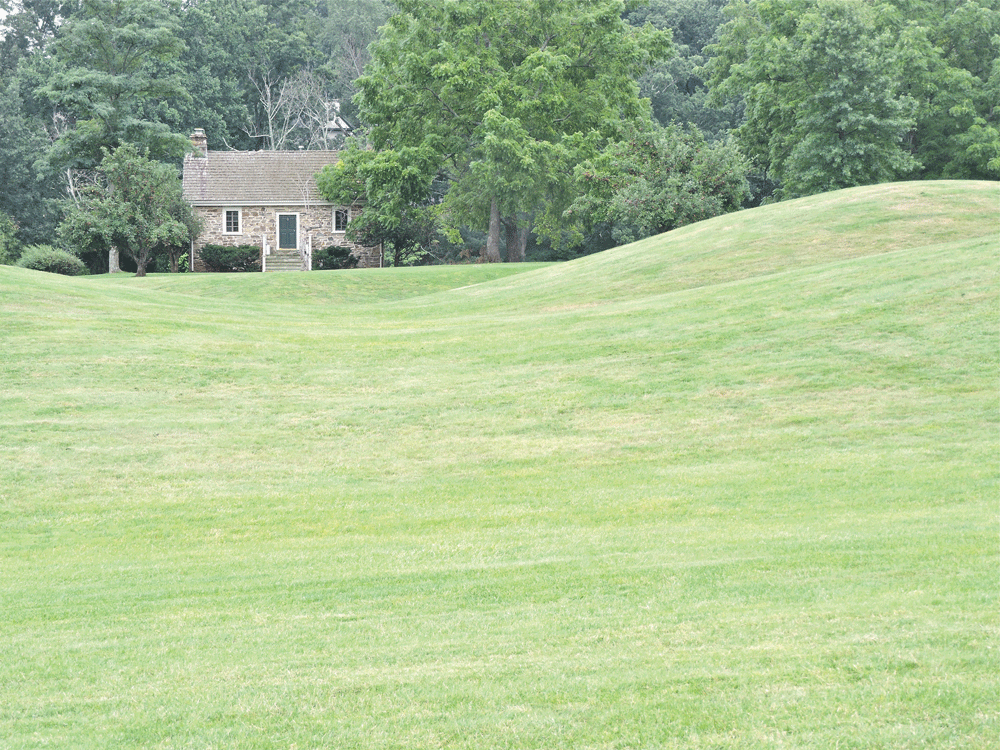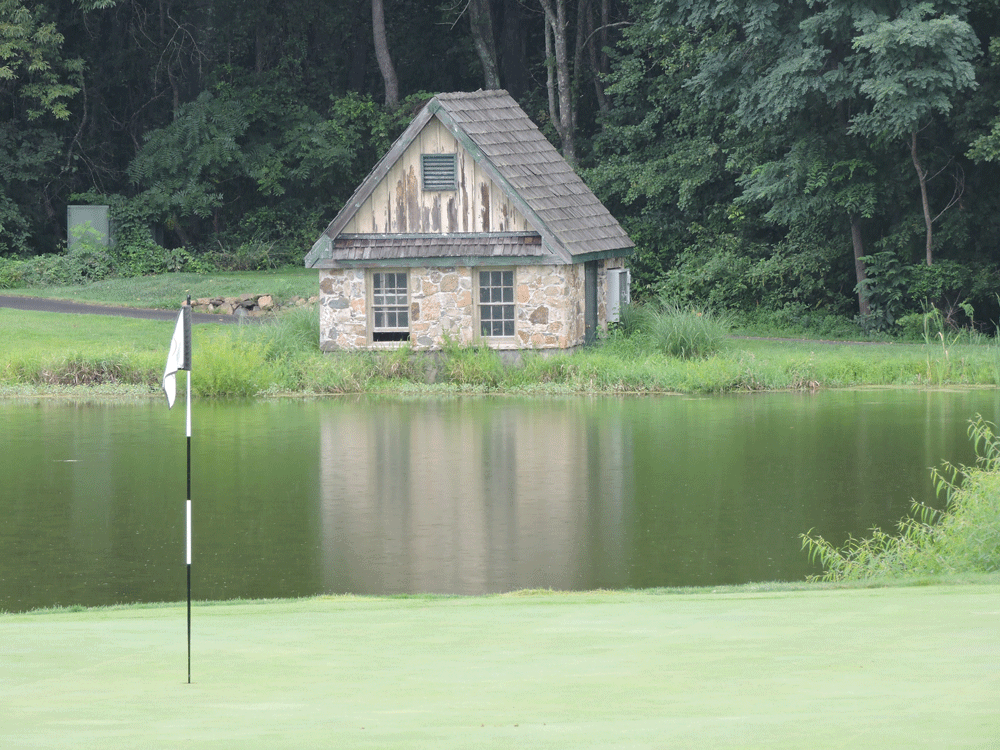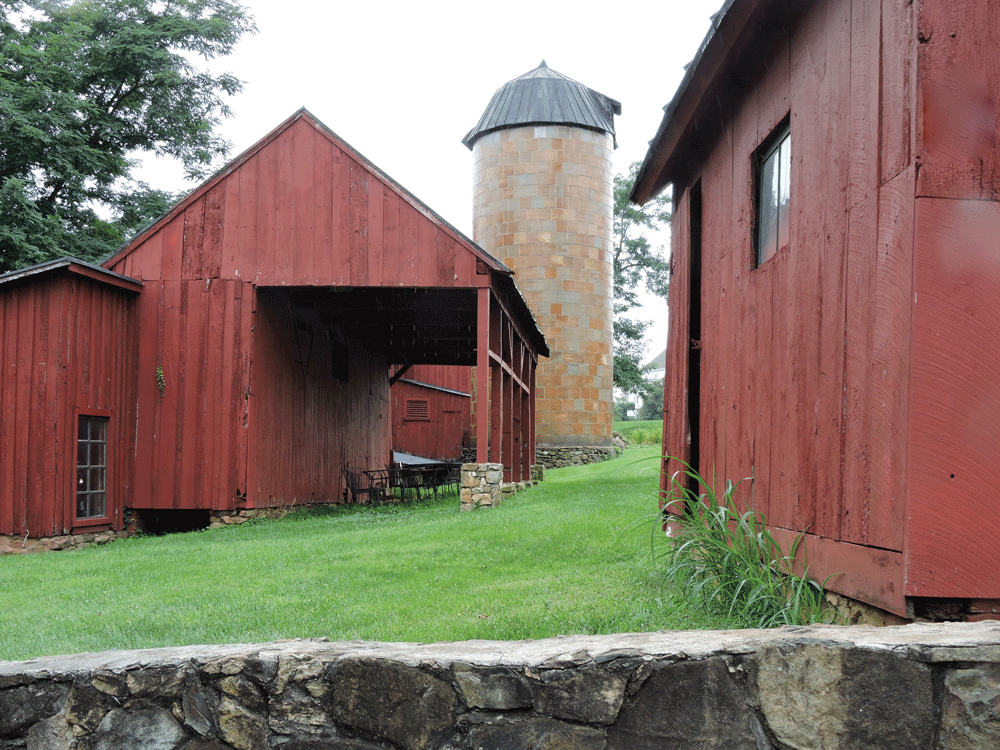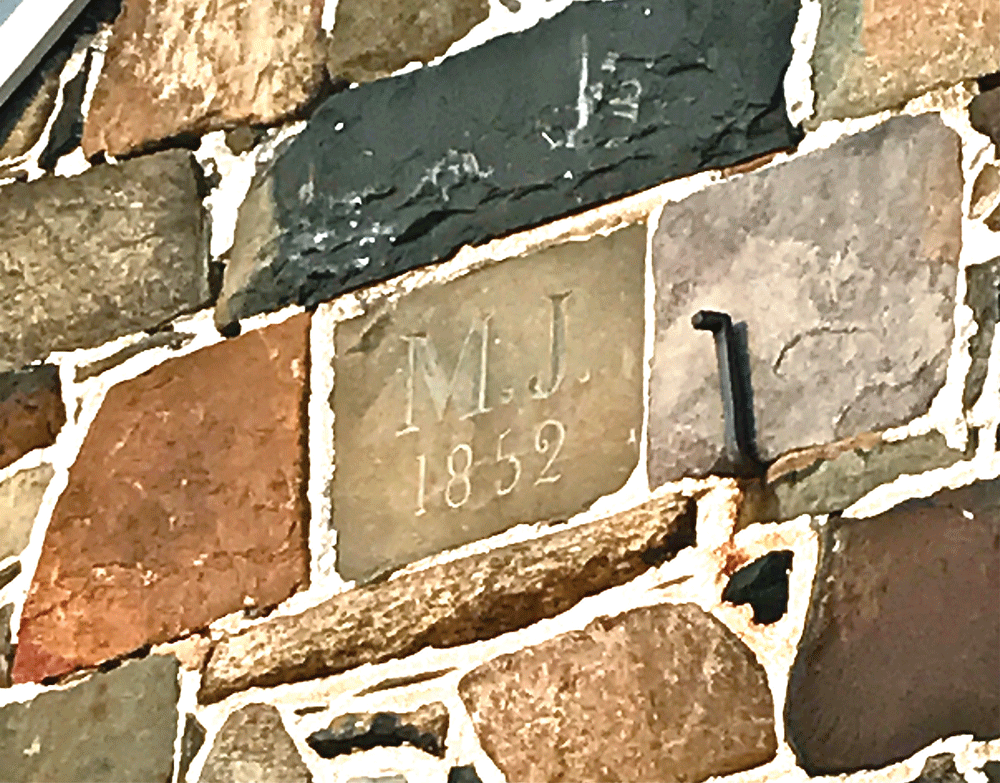Stoneleigh, Ambassador Dodd, and Golf

Story and photos by Richard Hooper

Located off Route 7, a short distance west of the town of Round Hill, Virginia, is the Stoneleigh Golf & Country Club. Going through numerous incarnations, it became such in the early 1990s. The remains and traces of these previous lives intertwining with the present make this a beautiful and unique place.
Stoneleigh is composed of portions of colonial land grants. The earliest, of 560 acres, was to John Dixon, a citizen of Delaware, who never built on the property. Another grant of 580 acres was awarded to John Hough, a surveyor, in 1754. The Stoneleigh of today straddles major portions of these two grants.
The oldest structure on the grounds is the stone Founder’s Cottage, believed to have been built in the mid-1700s. A surprise attraction, it nestles snugly alongside one of the fairways on the golf course.
The main residence was constructed for Mason James. It is a stone house and James’ initials and the date of 1852 are carved into one of the stones near the top of a large chimney. Now, it functions as part of the tavern for the club.
Mason James’ name for the property was Mount Silvia or Mount Sylva. One version or another of this name was used by James’ family until the property was sold to William E. Dodd in 1913. Dodd renamed it Stoneleigh, for its abundance of fieldstone. It operated as a dairy farm and fruit orchards and was Dodd’s summer retreat from his professorship in history at the University of Chicago.
Dodd, born in North Carolina in 1869, was a courageous man and a keen observer with an independent mind. While professor of history at Randolph-Macon College in the early 1900s, he came under harsh criticism for teaching that the South was not justified in seceding from the Union and that slavery and the concept of a white aristocracy were the causes of the war, not some lofty ideal of states’ rights.
In 1908, Dodd was offered a position at the University of Chicago. He continued teaching history there and was active in Democratic politics. He was a close friend to Woodrow Wilson and wrote a biography of him.
His reputation grew and in the spring of 1933, President Franklin Roosevelt offered Dodd the ambassadorship to Germany, which he accepted.
Dodd quickly became appalled at the situation there. He had studied in Germany, receiving his doctorate from the University of Leipzig, and could barely believe the alarming changes that had taken place among the citizenry. His were early warnings as to what was taking place and what it could lead to.
Dodd’s courage was ingrained in his character. In October 1933, he addressed the American Chamber of Commerce in Berlin and, with high Nazi officials present, stated that the Nazis were “half-educated statesmen” led by the whims of a dictator reminiscent of some ancient regime.

Dodd remained ambassador until the end of 1937 and died at his farm in February 1940.
After Dodd’s death, Stoneleigh passed through several owners until acquired by Bruce Brownell and a group of partners, who developed it into the Stoneleigh Golf and Country Club, which opened in 1992.
The group employed golf course architect Lisa Maki, who at the time was one of only seven women designing courses in America. She held a degree in landscape architecture and had studied the classic golf links of Scotland. Her vision was particularly suited to Stoneleigh and it is difficult to imagine anyone better to have designed its course.


The course rises and falls and wraps its way around the stone Founder’s Cottage and a red barn – set ablaze during the Civil War by the troops of General Sheridan, the fire was extinguished by Mason James’ daughter before it fully took hold. Old farm outbuildings come into play, streams meander and stone walls crisscross the landscape like stitching on a green quilt. Clusters of fruit trees form little groves here and there.
From the 18th green, in the distance across a large pond is a stone pump house of recent construction for irrigation. It sits there, almost floating in appearance, as a mysterious relic from the past, yet masterfully blending in.
The course maintains a bucolic, pastoral appearance while achieving a high level of sophistication and challenge. Members drive and putt their way through beauty and history. If Mark Twain had seen Stoneleigh, it’s possible that he may not have said that, “golf is a good walk spoiled.”
Acknowledgements: Ann Whitehead Thomas, A Story of Round Hill (Friends of the Thomas Balch Library, 2004); Arnold A. Offner American Appeasement: United States Foreign Policy and Germany, 1933–1938 (Harvard University Press, 1969); An extensive account of Dodd’s ambassadorship can be found in the book by Erik Larson, In the Garden of the Beasts (Random House/Broadway Books, 2011). ML
This story was originially published in Middleburg Life’s July 2018 issue.


